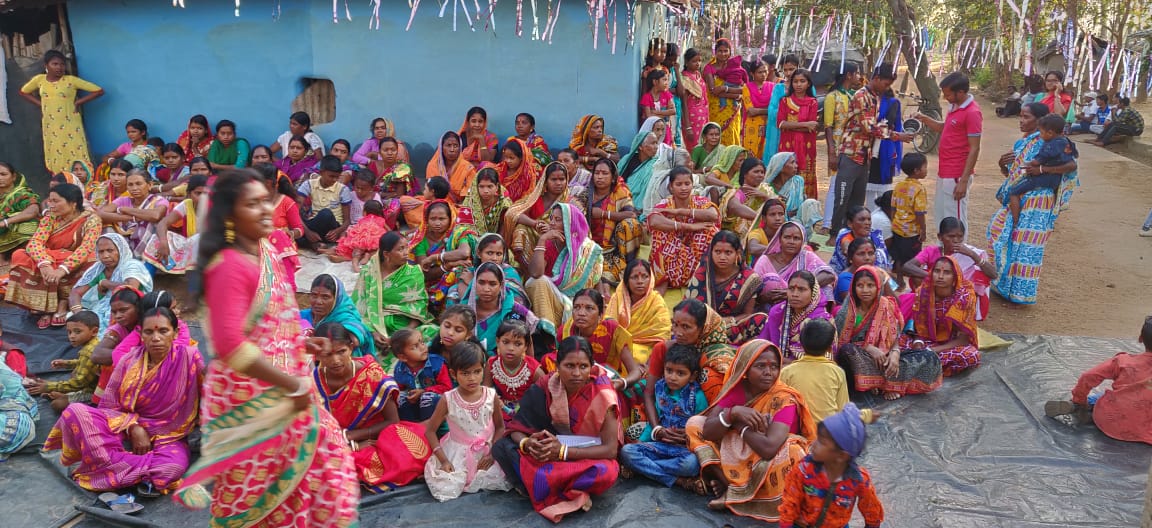
Making Generation Equality a Reality: Creating an enabling environment and capacity building of the women can make it happen
They are located in one of the remotest villages in the Jangal Mahal area of West Bengal, belonged to the most marginalized scheduled caste groups, lack access to the various opportunities and options to lead a life with secured livelihood and dignity. They have to work from the time when the dawn breaks till late at the night. They are the housewives and among the millions who despite putting their hard labor for about 14 to 15 hours a day are never considered as “producers”. But today they are the CHANGE and CHANGE AGENTS themselves. These housewives have transformed themselves and are united to achieve the goal of Generation Equality. It is such an inspiration to witness the celebration on the eve of the International Women’s Day by four women groups of the village Chhoto Koyma under Sarenga block, West Bengal. It is just about six months when these women had come forward to initiate sustainable livelihood activities in their village under the project Integrated landscape Management and Sustainable Agriculture under RKVY program funded by the Agriculture department that is being implemented by IBRAD.
While the project was initiated the field facilitators of IBRAD with their own biases and mindsets approached the menfolk of the village to initiate activities such as preparation of vermi compost, organic kitchen garden, community nursery raising. Number of meetings was held n the village while women remained in the fence line. But the discussions end up with promises and procrastination only. Then during a meeting held in the evening of a full moon day some of the women could not resist themselves and have come forward to participate in the talks. They volunteered to become the active partners to initiate the activities and formed two women groups. They have agreed to attend training at IBRAD campus Kolkata and a handful of 14 women were trained at IBRAD campus Kolkata. And for most of them it was the first time they had visited the city. With the physical mobility, exposure and interaction they started feeling empowered from within. The commitments and conviction to bring change in their family and in the villages stand stronger.
Soon after the training they have started nutrition kitchen gardens in their homestead land, preparing vermi compost and organic pesticides and planning to start pisciculture. All through the process the facilitators of IBRAD were providing hand holding training. They have started working as collective groups, identifying the unutilized resources and potentials in the villages to prepare the micro plan and its implementation. The two women groups were then divided into four smaller groups with Common Interests of business. All these four groups have started producing vegetables at a large scale on a bigger plot of land with shared responsibilities. And in the journey we have witnessed the process of transformation of these women. They have come out from their psychological shells, engaged and trained others in the village and are steering a process of altering their village both economically and
socially.
And these are the women who have celebrated the International
Women’s day on it’s eve on the 7th March 2020 that was exclusively
organized by the four women groups, Bono Jyotsna, Sundar Jyotsna, Ras Purnima
and Maghi Purnima, all named after full moon and moonlight as the original two
groups were formed on the full moon day of Buddha Jayanti (Birthday of Lord
Buddha). It is so well organized. They even had printed the invitation cards
and the ladies went to different government offices like Block Development
Officer, Assistant Director of Agriculture, Forest Range Office, Schools and many
other places to invite the officers to the program. Such was the level of
confidence and aspirations of these housewives ranging in age from their
twenties to sixties. What is most inspiring is the participation of all
sections of people in the program, women, men, girls and boys, ranging in the
age from 70 to 7. The village and its villagers showcased the color of hopes
prior to the celebration of Holi (Celebration of colors).
It is indeed jaw dropping to listen to the beautiful lyrics of
the theme song written and sang by these women who pledged to bring changes in
the villages in all spheres of life from education, health and livelihood. It
is not just a celebration. It is the passion, conviction, commitment and hope
far beyond the PowerPoint presentations and panel discussions and seminars and
release of books and reports or screening of films on women empowerment.
Rather these marginalized rural housewives have taught us the
real meaning of empowerment. They have exemplified that how through proper
training and creation of an enabling environment the empowerment becomes a
reality.
Kudos to these ladies who have slaughtered the myth of a traditional
rural housewife and are showing the path for making Generation Equality a Reality.

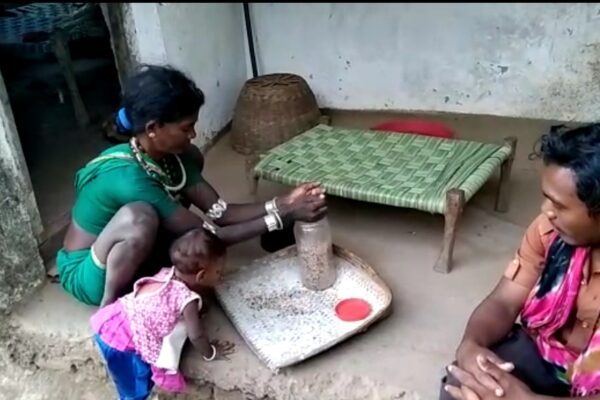
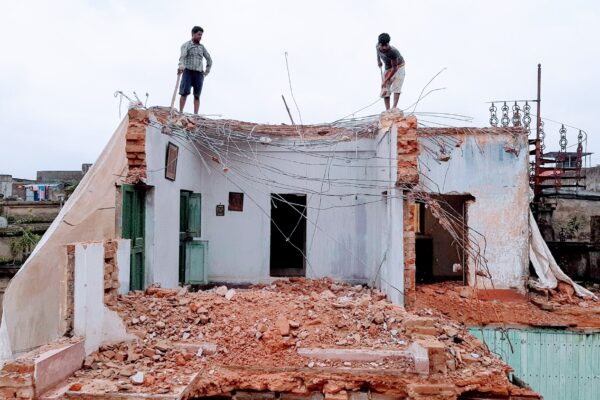
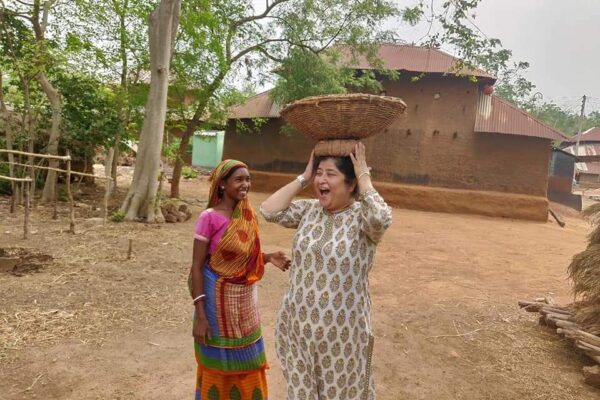
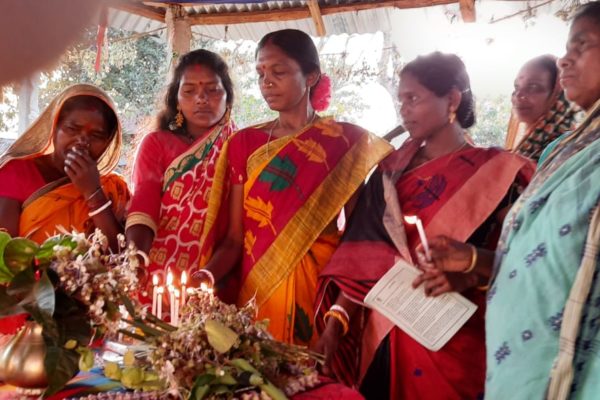
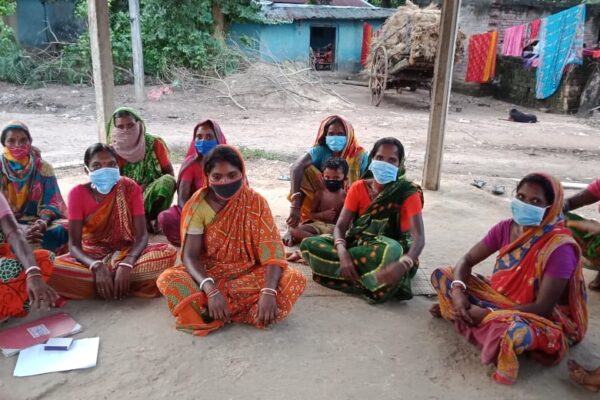
Shree Bhagwan Roy
It is very encouraging to find the change in socio-economic behavior through intervention for improving the livelihood issues.
Rajat Subhra Mukhopadhyay
Excellent work…kudos to you and entire team of IBRAD for such a wondeful job..
Raktima Mukhopdhyay
Thanks. Need your comments and suggestions for our future efforts
Chumki Piplai
Khub bhalo prochesta. Er sathe r ekta point jog kore dio. Ja tomake age janiyechi. Bindu bindu niye sindhu hoy. Chriye poruk gram hote gramantare. Ei amar parthona. Suvechha janai.
Raktima Mukhopdhyay
Thank you didi. Will discuss with you for strengthening our efforts in future.
admin
Thanks Arpita for your encouragement.
Arpita Mitra
Wonderful work, empowerment in its truest sense. Could get a clear picture.